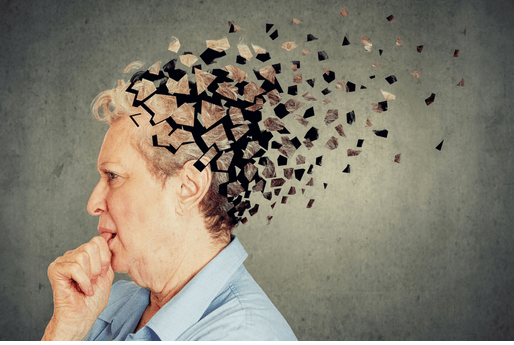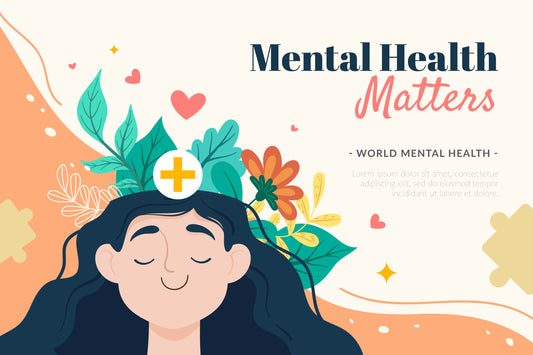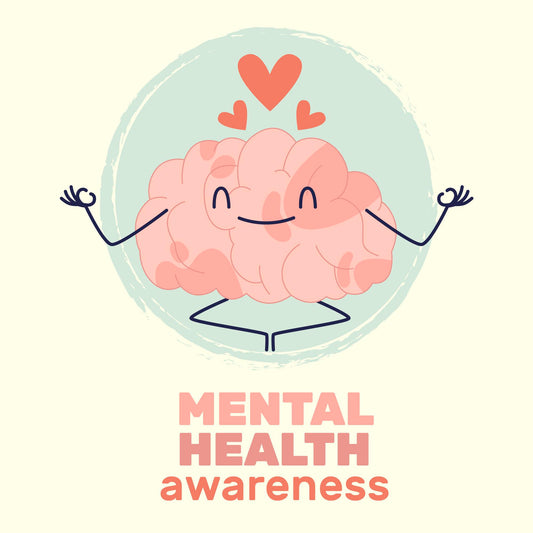Alzheimer's disease is a progressive neurological disorder that primarily affects the memory and cognitive functions of the brain. It is the most common form of dementia and usually occurs in older individuals, although early-onset Alzheimer's can also occur and develop alzheimer's in individuals in their 40s or 50s, but is most common with people over the age of 60.
What is Alzheimers
The disease is characterised by the accumulation of abnormal protein deposits, called plaques and tangles, in the brain. These deposits interfere with the communication between brain cells, leading to the gradual decline of cognitive abilities.
Some of the common and early symptoms of Alzheimer's disease include memory loss, difficulty with problem-solving and decision-making, confusion, disorientation, mood swings, memory lapses, changes in behaviour and personality and impaired reasoning. As the disease develop alzheimers, individuals may also experience everyday living of language difficulties, difficulty recognising familiar people or objects, and challenges with motor skills.
Positive ways of coping with Alzheimers
Engaging in regular physical exercise has been shown to have positive effects on brain health and may help reduce the risk of developing Alzheimer's disease. Exercise promotes blood flow to the brain, improves cognitive function, and reduces the risk of other health conditions that can contribute to cognitive decline, such as cardiovascular disease and diabetes.
In addition to exercise, maintaining a healthy lifestyle that includes a balanced diet, regular mental stimulation, social engagement, and quality sleep can also contribute to overall brain health and potentially reduce the risk of Alzheimer's disease. It is important to consult with healthcare professionals for personalized advice and to stay updated on the latest research of most common cause and treatment options for Alzheimer's disease.
Signs and symptoms of Alzheimer's disease
Alzheimer's is often associated with memory loss and is a common occurrence. People with mental issues are diagnosed as having mild cognitive disorders. The symptoms of MCI are mild and do not affect daily activities. Movement difficulties are linked with MCIA as well as smell issues. Older people in MCC are more likely to have Alzheimer's. Many of these individuals will regress back to normal cognitive skills. Symptoms of Alzheimer's are varied among individuals. Alzheimer's disease is a progressive brain disorder that affects memory, thinking, and behavior which slowly destroys memory. Recognizing the signs and symptoms of Alzheimer's disease is crucial in order to seek early medical intervention and support.
Here are some common signs and symptoms to be aware of:
1. Memory Loss
2. Difficulty Problem Solving
3. Confusion with Time and Place
4. Changes in Mood and Personality
5. Decline in Judgment
6. Difficulty with Language and Communication
7. Misplacing Items and Difficulty Retracing Steps
What causes Alzheimer's disease?
Alzheimer's disease is a progressive neurodegenerative disorder that primarily affects memory, thinking, and behavior. While the exact cause of Alzheimer's disease is not fully understood, there are several factors that are believed to contribute to its development.
These deposits disrupt the communication between brain cells and lead to the death of neurons, resulting in the characteristic symptoms of the disease.
Genetic factors also play a role in Alzheimer's disease. Certain gene mutations, such as mutations in the amyloid precursor protein (APP) and presenilin genes, have been linked to the early-onset form of the disease. However, these genetic factors account for a small percentage of cases, and most cases of Alzheimer's disease are considered sporadic or late-onset, with a complex interplay of genetic and environmental factors.
Age is another significant risk factor for Alzheimer's disease. The risk of developing the disease increases with advancing age, and most people with Alzheimer's are 65 years or older. However, it's important to note that Alzheimer's is not a normal part of aging.
Other factors that may contribute to the development of Alzheimer's disease include chronic medical conditions like cardiovascular disease, diabetes, and high blood pressure. These conditions can affect blood flow and increase the risk of cognitive decline.
Additionally, lifestyle factors such as diet, exercise, social engagement, and cognitive stimulation are believed to influence the risk of Alzheimer's disease. A healthy lifestyle that includes a balanced diet rich in fruits, vegetables, whole grains, lean proteins, and healthy fats, regular physical exercise, maintaining social connections, and engaging in mentally stimulating activities may help reduce the risk of developing Alzheimer's disease.
How Is Alzheimer's Diagnosed and Treated?
Typically, medical professionals will ask people based on medical history questions or perform standardised medical tests to identify a diagnosis of the disease. When a patient has Alzheimer's or has an Alzheimer's diagnosis he may ask a neurologist for further evaluation. Specialists can carry out more tests for diagnosis. The test measures symptoms including changes in the body's size or the level and quantity of protein that causes the condition. Diagnosing Alzheimer's can be challenging, as there is no definitive test for the disease. However, doctors use a combination of medical history, physical and neurological examinations, and various tests like cognitive tests to make an accurate diagnosis.
To begin the diagnostic process, doctors will typically assess the individual's medical history, including any family history and family members of Alzheimer's or other cognitive disorders. They will also evaluate the person's symptoms and perform a physical examination to rule out any other potential causes of cognitive decline.
Neuropsychological testing is often conducted to assess cognitive function and identify any specific patterns of impairment. This can involve memory tests, problem-solving tasks, and assessments of language and visuospatial skills. Imaging tests, such as magnetic resonance imaging (MRI) or positron emission tomography (PET) scans, may also be used to evaluate brain structure and function and rule out other conditions.
Medications, such as cholinesterase inhibitors (donepezil, rivastigmine, and galantamine) and memantine, can help slow down the progression of symptoms and temporarily improve cognitive function.
In addition to medication, non-pharmacological treatments are also important in managing Alzheimer's. Cognitive stimulation therapy, which involves engaging in activities to stimulate thinking and memory, has shown to be beneficial. Occupational therapy, speech therapy, and physical exercise are often recommended to maintain functional independence and maximize overall well-being.
Supportive care is crucial for individuals with Alzheimer's and their caregivers. This can involve implementing routines and strategies to help with memory and daily tasks, providing emotional support, and accessing community resources and support groups.

How do you deal with Alzheimer's disease?
Dealing with Alzheimer's disease can be a challenging and overwhelming experience for both the individual affected and their loved ones.
Seek Medical Attention: If you suspect that you or a loved one may be experiencing symptoms of Alzheimer's disease, it is important to consult with a medical professional. They can provide a proper diagnosis and develop a personalized treatment plan.
Medication: There are medications available that can help manage some of the symptoms of Alzheimer's disease. These medications may help improve memory, thinking, and behavior in some individuals. It is essential to work closely with a healthcare provider to determine the most appropriate medication and dosage.
Cognitive Stimulation: Engaging in cognitive activities can help to avoid the risk factors and keep the brain active and slow the progression of Alzheimer's disease. This can include puzzles, word games, reading, music, or learning a new skill. Regular mental stimulation can help maintain cognitive function and improve overall well-being.
Physical Exercise: Regular physical activity has been shown to have numerous benefits for individuals with Alzheimer's disease. Exercise promotes overall health, improves blood flow to the brain, and may help reduce the risk of cognitive decline. Engaging in activities such as walking, swimming, dancing, or yoga can be beneficial.
Healthy Diet: Proper nutrition is crucial for overall health and can have a positive impact on brain health as well. It is important to limit the consumption of processed foods, sugary snacks, and unhealthy fats.
Social Engagement: Staying socially active can help individuals with Alzheimer's disease maintain a sense of connection and purpose. Engaging in activities with friends, family, or participating in support groups can provide emotional support, reduce isolation, and stimulate cognitive function.
Caregiver Support: Alzheimer's disease can be emotionally and physically demanding for caregivers. Seeking support from other caregivers, joining support groups, or seeking respite care services can help alleviate stress and provide guidance on how to best care for someone with Alzheimer's disease.
Safety Measures: As Alzheimer's disease progresses, it is important to implement safety measures to prevent accidents or injuries. This may include installing safety locks, removing hazards, and ensuring that the living environment is secure.
In conclusion, while there is no cure for Alzheimer's disease, a combination of medical attention, cognitive stimulation, physical exercise, a healthy diet, social engagement, caregiver support, and safety measures can help manage the symptoms and improve the quality of life for individuals with Alzheimer's and their caregivers. It is important to work closely with healthcare professionals and adapt strategies as needed to provide the best possible care and support.








